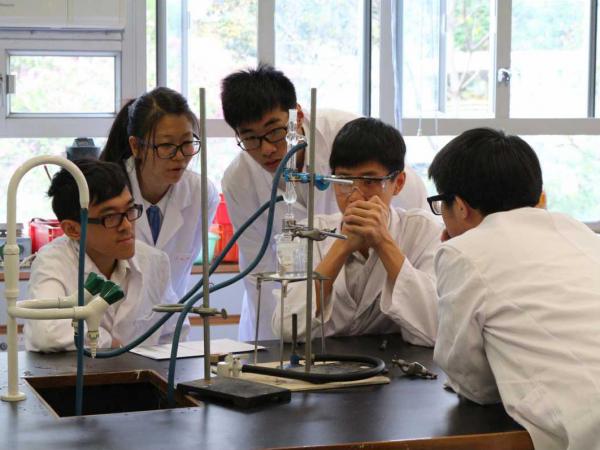Curriculum Objectives
The broad aims of the Chemistry Curriculum are to enable students to:
- develop interest and maintain a sense of wonder and curiosity about chemistry;
- construct and apply knowledge of chemistry, and appreciate the relationship between chemistry and other disciplines;
- appreciate and understand the evolutionary nature of science;
- develop skills for making scientific inquiries;
- develop the ability to think scientifically, critically and creatively, and solve problems individually and collaboratively in chemistry-related contexts;
- discuss science-related issues using the language of chemistry;
- make informed decisions and judgements on chemistry-related issues;
- develop open-mindedness, objectivity and pro-activeness;
- show appropriate awareness of working safely;
- understand and evaluate the social, ethical, economic, environmental and technological implications of chemistry, and develop an attitude of responsible citizenship.
Curriculum Content
Compulsory Part
- I. Planet earth
- II. Microscopic world I
- III. Metals
- IV. Acids and bases
- V. Fossil fuels and carbon compounds
- VI. Microscopic world II
- VII. Redox reactions, chemical cells and electrolysis
- VIII. Chemical reactions and energy
- IX. Rate of reaction
- X. Chemical equilibrium
- XI. Chemistry of carbon compounds
- XII. Patterns in the chemical world
Elective Part
- XIII. Industrial chemistry
- XIV. Materials chemistry
- XV. Analytical chemistry
Investigative Study
- XVI. Investigative study in chemistry



